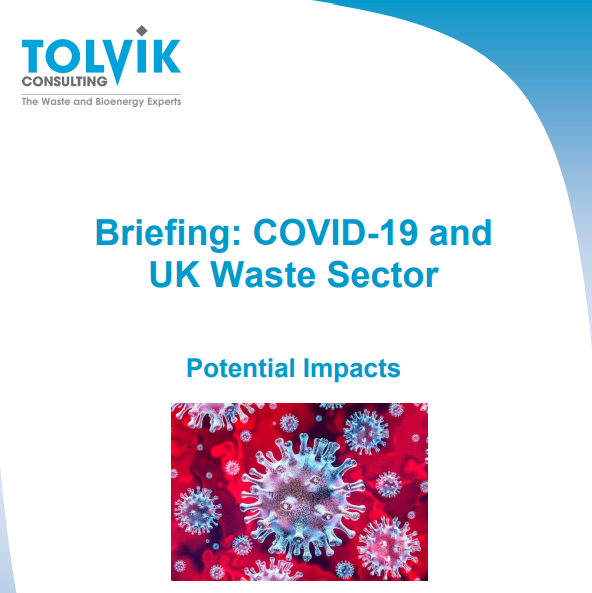There could be a fall in residual commercial and industrial waste of just under 50% in the immediate short term under current government restrictions in place due to the coronavirus pandemic.
However, with a potential rise in online shopping and an increased focus on activities such as DIY, gardening and decluttering, the total tonnage of household waste generated could increase by around 13%.
These estimations were made by environmental consultancy firm Tolvik in a briefing note on the potential impacts of COVID-19 on the waste sector. It can be read in full here.
A Tolvik spokesperson said: “Given the rate at which our way of living in the UK has changed in recent weeks, it is with some trepidation that, in response to requests from a number of stakeholders, we have prepared this initial briefing report on the potential impacts of the COVID-19 pandemic on the UK waste sector.
“It is still very early days in the development of the COVID-19 virus. In the coming months the impact of the virus, and the UK government’s response to it, is likely to evolve.
“As a result, we plan to review our briefing report from time to time and update it as necessary.”
Tolvik notes it seems unlikely any further government restrictions would have a material impact on their analysis for the short term.
Factors
Tolvik has identified two factors it deems critical to the sector. The first is the capacity to collect household waste tonnages considering staff illness and absence as a result of self-isolation. The second is the capacity to process and store separately collected dry recyclables.
The consultancy firm also notes the regional distribution of the coronavirus will play a major role; it says that in those areas where the effects of COVID-19 on staff availability are less significant, the disruption in household waste recycling collection may be lower.
Economic predictions
Tolvik says it uses GDP growth for services as the principle driver when calculating commercial and industrial waste arisings.
“It is still very early days in the development of the COVID-19 virus”
With a potential ‘downside GDP growth’ of -5.4% in 2020 and -1.4% in 2021 predicted by accountancy firm KPMG – equivalent to a recession “slightly more severe than the downturn experienced in 2008-09” – Tolvik predicts recycling rates will not be affected in the short to medium term.
However, it notes the extent to which GDP declines and the corresponding impact on residual commercial and industrial waste tonnages will be determined by the longevity of the government restrictions, the rate at which they are lifted and the ability of businesses to remobilise their activities thereafter.
RDF
Tolvik also says that, in January 2020, exports of refuse derived fuel (RDF) from England were just 60% of the average seen in January in the previous two years. It attributes this trend to the introduction of a tax in the Netherlands (see letsrecycle.com story).
Therefore, in terms of the tonnage of residual waste available for treatment in England, the changing pattern of RDF exports has the potential to limit the impact of COVID-19 on the market, Tolvik says.
The post Commercial waste could be halved by restrictions appeared first on letsrecycle.com.
Source: letsrecycle.com Waste Managment



